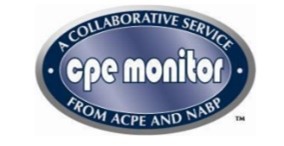This online MinuteCE program provides a comprehensive evaluation of the latest clinical data on first-line immune checkpoint inhibitor (ICI) combinations for the treatment of unresectable hepatocellular carcinoma (HCC). Participants will critically assess survival outcomes and other key efficacy metrics from recent studies. The program emphasizes the application of efficacy and safety data to tailor treatment regimens based on individual patient profiles and preferences. Additionally, it addresses the recognition and management of treatment-related adverse events associated with these regimens. The course also incorporates strategies for effective communication and shared decision-making within the multidisciplinary care team, ensuring optimal patient-centered care.
Unresectable Hepatocellular Carcinoma: Selecting the Optimal First-Line ICI Combination
Selecting the Optimal ICI Partner for First-Line Treatment of Unresectable HCC: CTLA-4 vs VEGFInhibitors
Overview
Disclosure of Conflicts of Interest
In accordance with the ACCME Standards for Integrity and Independence, Global Learning Collaborative (GLC) requires that individuals in a position to control the content of an educational activity disclose all relevant financial relationships with any ineligible company. GLC mitigates all conflicts of interest to ensure independence, objectivity, balance, and scientific rigor in all its educational programs.
Host:
Ghassan K. Abou-Alfa, MD
Professor
Memorial Sloan Kettering Cancer Center
New York, NYDr. Abou-Alfa has reported the following relevant financial relationships or relationships with ineligible companies of any amount during the past 24 months:
Research: Agenus, Arcus, AstraZeneca, BioNtech, BMS, Elicio, Genentech/Roche, Helsinn, Parker Institute, Pertzye, Puma, QED, Servier, Yiviva
Consulting: Abbvie, Alligator AstraZeneca, Autem, Berry Genomics, BioNtech, Boehringer Ingelheim, BMS, Eisai, Exelixis, Genentech/Roche, Incyte, Ipsen, J-Pharma, Merck, Merus, Neogene, Novartis, Servier, Tango, Tempus, Vector, YivivaFaculty:
Aiwu Ruth He, MD, PhD
Associate Professor of Medicine
Georgetown-Lombardi Comprehensive Cancer Center
Georgetown University Washington, DCDr. He has reported the following relevant financial relationships or relationships with ineligible companies of any amount during the past 24 months:
Research: AstraZeneca
Consulting Fees: Eisai, AstraZenecaReviewers/Content Planners/Authors:
- Ann Early has nothing to disclose.
- Amanda Holinka has nothing to disclose.
- Samantha Keehn has nothing to disclose.
- Tim Person has nothing to disclose. (list on all)
- Bing-E Xu has nothing to disclose.
- Brian P. McDonough, MD, FAAFP, has nothing to disclose.
Learning Objectives
After participating in this educational activity, participants should be better able to:
- Critically evaluate the latest clinical data, including survival outcomes, for approved ICI combinations in the first-line treatment of unresectable HCC
- Apply efficacy and safety data to inform selection of the optimal regimen for unresectable HCC based on patient clinical profiles as well as patient preferences
- Recognize and manage treatment-related adverse events associated with the use of first-line combination regimens for HCC
- Incorporate communication strategies among the multidisciplinary team that ensure shared decision-making between the care team and each patient
Target Audience
This activity has been designed to meet the educational needs of Oncologists and Hepatologists as well as all other physicians, physician assistants, nurse practitioners, nurses, pharmacists, and healthcare providers involved in managing patients with Unresectable Hepatocellular Carcinoma.
Accreditation and Credit Designation Statements
 In support of improving patient care, Global Learning Collaborative (GLC) is jointly accredited by the Accreditation Council for Continuing Medical Education (ACCME), the Accreditation Council for Pharmacy Education (ACPE), and the American Nurses Credentialing Center (ANCC) to provide continuing education for the healthcare team.
In support of improving patient care, Global Learning Collaborative (GLC) is jointly accredited by the Accreditation Council for Continuing Medical Education (ACCME), the Accreditation Council for Pharmacy Education (ACPE), and the American Nurses Credentialing Center (ANCC) to provide continuing education for the healthcare team.Global Learning Collaborative (GLC) designates this enduring activity for a maximum of 1.00 AMA PRA Category 1 Credits™. Physicians should claim only the credit commensurate with the extent of their participation in the activity.
Global Learning Collaborative (GLC) designates this activity for 1.00 nursing contact hours. Nurses should claim only the credit commensurate with the extent of their participation in the activity.

Global Learning Collaborative (GLC) designates this activity for 1.00 contact hours/0.10 CEUs of pharmacy contact hours.
The Universal Activity Number for this program is JA0006235-0000-24-080-H01-P. This learning activity is knowledge-based. Your CE credits will be electronically submitted to the NABP upon successful completion of the activity. Pharmacists with questions can contact NABP customer service (custserv@nabp.net).
Provider(s)/Educational Partner(s)

It’s about time! Today’s on-the-go learners have minutes to spend on education instead of hours. Total CME, LLC, is an award-winning, global healthcare education company that strategically pioneers methodology, initiatives, and platforms to meet these time-limited needs. Unlike other medical education companies, Total CME employs a microlearning approach and platform to create outcome-based curricula that motivates HCPs to engage in self-directed point-of-care learning that impacts change in real time. Even while reaching the largest global distribution, we provide the most personalized, seamless learner experience. We’re meeting our busy learners where they are so they can focus on what they want when they need it, ultimately leading to behavior changes that impact clinical practice and empower patients in their own care.
Commercial Support
This activity is supported by an independent educational grant from AstraZeneca.
Disclaimer
The views and opinions expressed in this educational activity are those of the faculty and do not necessarily represent the views of GLC and Total CME. This presentation is not intended to define an exclusive course of patient management; the participant should use his/her clinical judgment, knowledge, experience, and diagnostic skills in applying or adopting for professional use any of the information provided herein. Any procedures, medications, or other courses of diagnosis or treatment discussed or suggested in this activity should not be used by clinicians without evaluation of their patients’ conditions and contraindications or dangers in use, review of any applicable manufacturer’s product information, and comparison with recommendations of other authorities. Links to other sites may be provided as additional sources of information. Once you elect to access a site outside of Total CME you are subject to the terms and conditions of use, including copyright and licensing restriction, of that site.
System Requirements
- Supported Browsers (2 most recent versions):
- Google Chrome for Windows, Mac OS, iOS, and Android
- Apple Safari for Mac OS and iOS
- Mozilla Firefox for Windows, Mac OS, iOS, and Android
- Microsoft Edge for Windows
- Recommended Internet Speed: 5Mbps+
Publication Dates
Release Date:
Expiration Date:



